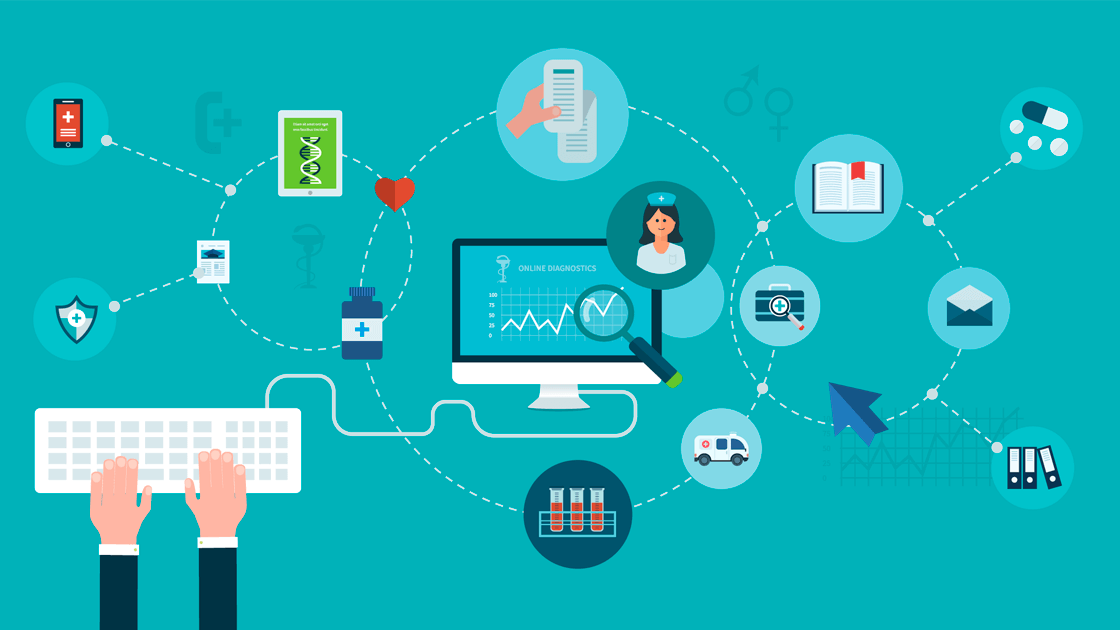Why do we necessitate these changes in healthcare?
Nowadays, blockchain technologies penetrate various aspects of our life, and one of them is healthcare. Things that are required for this industry are transparency and immutability, and blockchain gives these features to it.
There has been a lot of hype overusing blockchains in this field, and there’re some causes for this. The first one is decentralization, every point is registered, and anyone is unable to modify it, cause the data containing blocks are preserved with cryptography. That'll be very effective for the healthcare system.
Also, it’s remarkable that the sphere is doing a lot of paperwork and keep tremendous amounts of data. The implementation of blockchain technology lets significantly decrease the time that’s wasted on this routine, and also it offers a modern tool for regulating all types of databases. This means that the doctor will have access straight to all data connected with each patient, without the obligation to interact with other colleagues. That'll save time, which is very crucial when it’s an emergency.
Some people believe that blockchains can improve a data-sharing system between the hospitals. Nowadays, every hospital can have its way of collecting electronic medical info about their cases and it’s becoming very hard to interact with each other when the patient needs to be transferred from one institution to another.
The one thing that is also very important for the growth of the healthcare system is the smart contracts. They exclude the need for a third-party and make the communication process easier. What’s more, blockchain could help the industry to reduce counterfeit drugs. One of the areas that use decentralized technologies the most is supply chains. Some commercial giants are already applying blockchain to track the origins of particular goods they trade, and pharmaceutical manufacturers could follow this example.
Some of you may think it’s not safe to trust your data to the technologies, but one thing you’re supposed to know is that blockchain is much safer than the traditional electronic gadgets and methods of storing data hospitals use nowadays. Only in 2018, there were 750 hack cases recorded in the healthcare sphere. And this number is increasing year by year. Mostly the US suffers from this type of assault. As a result of this healthcare system is losing approximately $6 billion in a year. Here’s when the high safety and immutability of blockchains are a necessity.
Use cases
MedRec
Trending: Fintech Company Plaid Announced Its First Crypto-Native Product
One of the most usual cases is connected with medical records. It’s easier to work with the patient’s data with the blockchain implementation. MedRec is a special platform for getting a transparent and easy view of medical history. It gives a priority to patient’s agency and aims to store all the detailed information in one place, making it more manageable both for doctors and for patients. Currently, this chain is operating via Proof of Authority protocol.
phrOS
The project, lately started by The Taipei Medical University Hospital and Digital Treasury Corporation, intends to develop transparency among medical institutions by collecting all the patient’s data on a blockchain.
PhrOS includes everything that is connected with a patient’s condition from pictures to various information. A mobile application lets and doctors and patients have access to the data. Moreover, the Decentralized Ledger Technology of phrOS aims to increase the level of protection of medical files.
FarmaTrust
There’s a statistics that approximately 10000 people die each year because of counterfeit drugs and FarmaTrust aims to change this situation.
This blockchain is divided into 4 sections. Regulatory Compliance aids pharmaceutical corporations by guaranteeing they’re working within guidelines established by the government. Track and Trace use the blockchain to maintain inventory wherever it goes. Supply Chain Visibility follows when a medicine has been modified or altered in any way. And finally, Consumer Confidence App enables customers to see the lifecycle of their medicine.
Trending: CoinShares: Bitcoin funds raised $8.8 million in a week
MTBC
Sometimes it’s being hard to manage all the medical records that are saved in electronic form. As we have already stated, the system of EHR can vary from one hospital to another, so MTBC is trying to make a solution to this issue. It combines API and blockchain to change and make the process of getting data more accessible. The main idea is to give the patient control of private information, so he/she will decide to transfer files from one doctor to another or not. It’s currently available and runs on the Hyperledger platform.
Ambrosus
Ambrosus is an IoT supply chain manufacturer, which aims to grow and use modern technologies for the pharmaceutical industry. The company is making conversations with various industry supplies to launch the pilot version of the program utilizing their products.
Hashed Health
A blockchain corporation that is concentrated on health aims to form credentials in the sphere of healthcare extra transparent. The blockchain’s team cooperates with the Professional Credentials Exchange to verify the credentials and track records of various professors. This helps to streamline the hiring process and also provides unalterable information about the doctor’s career history.
These examples are making obvious the point that blockchains will dramatically advance the sector of healthcare and their implementation in everyday life can help us avoid some problems we face today.






